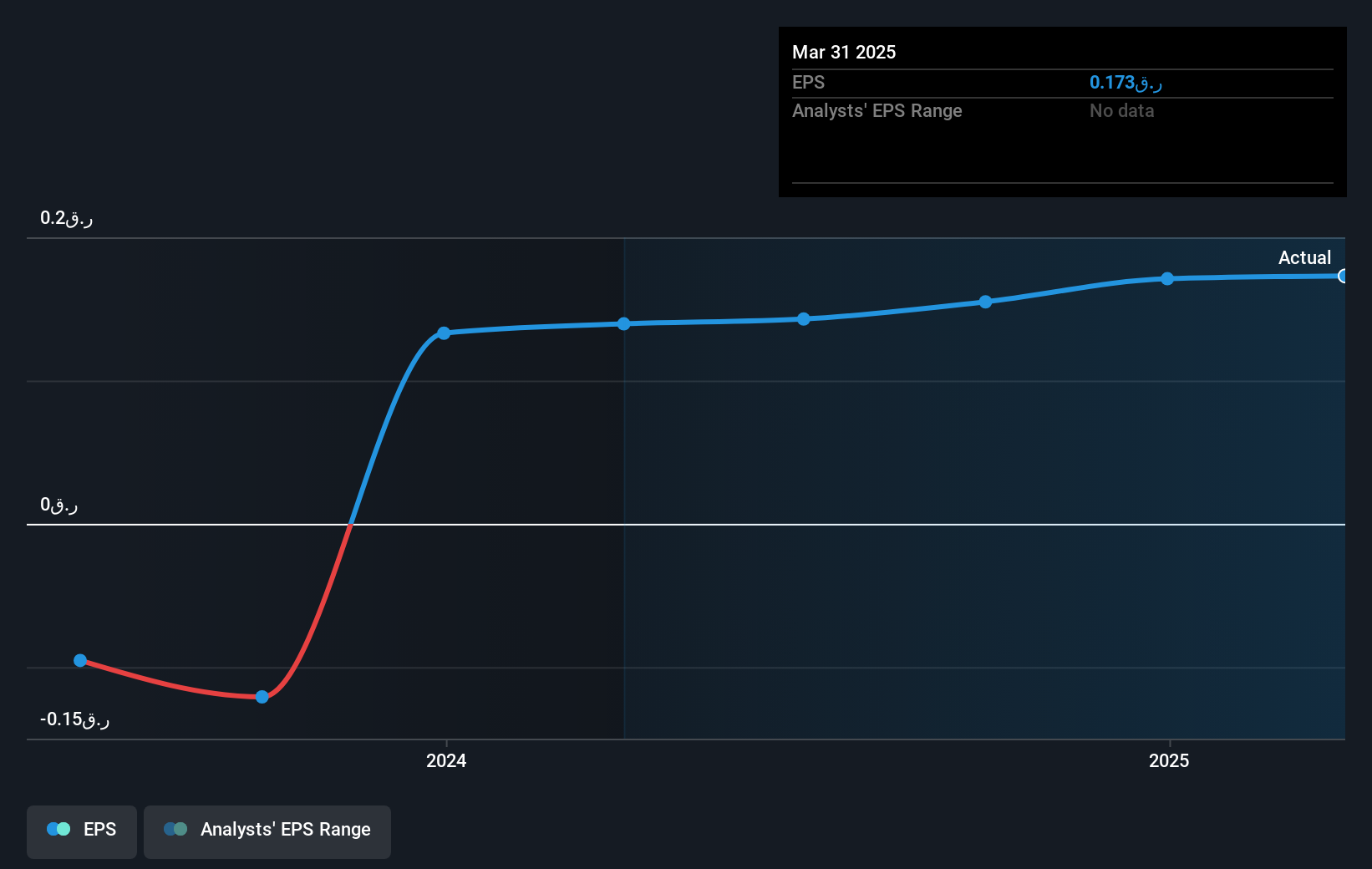Qatar Insurance Company Q.S.P.C (DSM:QATI) sheds ر.ق248m, company earnings and investor returns have been trending downwards for past three years
In order to justify the effort of selecting individual stocks, it's worth striving to beat the returns from a market index fund. But if you try your hand at stock picking, you risk returning less than the market. We regret to report that long term Qatar Insurance Company Q.S.P.C. (DSM:QATI) shareholders have had that experience, with the share price dropping 23% in three years, versus a market decline of about 1.9%.
Given the past week has been tough on shareholders, let's investigate the fundamentals and see what we can learn.
While markets are a powerful pricing mechanism, share prices reflect investor sentiment, not just underlying business performance. One way to examine how market sentiment has changed over time is to look at the interaction between a company's share price and its earnings per share (EPS).
During the three years that the share price fell, Qatar Insurance Company Q.S.P.C's earnings per share (EPS) dropped by 3.7% each year. The share price decline of 8% is actually steeper than the EPS slippage. So it's likely that the EPS decline has disappointed the market, leaving investors hesitant to buy. The less favorable sentiment is reflected in its current P/E ratio of 10.64.
You can see below how EPS has changed over time (discover the exact values by clicking on the image).

We know that Qatar Insurance Company Q.S.P.C has improved its bottom line lately, but is it going to grow revenue? Check if analysts think Qatar Insurance Company Q.S.P.C will grow revenue in the future.
What About Dividends?
As well as measuring the share price return, investors should also consider the total shareholder return (TSR). The TSR is a return calculation that accounts for the value of cash dividends (assuming that any dividend received was reinvested) and the calculated value of any discounted capital raisings and spin-offs. So for companies that pay a generous dividend, the TSR is often a lot higher than the share price return. We note that for Qatar Insurance Company Q.S.P.C the TSR over the last 3 years was -15%, which is better than the share price return mentioned above. And there's no prize for guessing that the dividend payments largely explain the divergence!
A Different Perspective
Qatar Insurance Company Q.S.P.C shareholders are down 7.7% for the year (even including dividends), but the market itself is up 17%. However, keep in mind that even the best stocks will sometimes underperform the market over a twelve month period. Longer term investors wouldn't be so upset, since they would have made 1.7%, each year, over five years. If the fundamental data continues to indicate long term sustainable growth, the current sell-off could be an opportunity worth considering. I find it very interesting to look at share price over the long term as a proxy for business performance. But to truly gain insight, we need to consider other information, too. To that end, you should learn about the 2 warning signs we've spotted with Qatar Insurance Company Q.S.P.C (including 1 which is significant) .
If you are like me, then you will not want to miss this free list of undervalued small caps that insiders are buying.
Please note, the market returns quoted in this article reflect the market weighted average returns of stocks that currently trade on Qatari exchanges.
Valuation is complex, but we're here to simplify it.
Discover if Qatar Insurance Company Q.S.P.C might be undervalued or overvalued with our detailed analysis, featuring fair value estimates, potential risks, dividends, insider trades, and its financial condition.
Access Free AnalysisHave feedback on this article? Concerned about the content? Get in touch with us directly. Alternatively, email editorial-team (at) simplywallst.com.
This article by Simply Wall St is general in nature. We provide commentary based on historical data and analyst forecasts only using an unbiased methodology and our articles are not intended to be financial advice. It does not constitute a recommendation to buy or sell any stock, and does not take account of your objectives, or your financial situation. We aim to bring you long-term focused analysis driven by fundamental data. Note that our analysis may not factor in the latest price-sensitive company announcements or qualitative material. Simply Wall St has no position in any stocks mentioned.
About DSM:QATI
Qatar Insurance Company Q.S.P.C
Engages in the insurance, reinsurance, real estate asset management, and information technology businesses.
Adequate balance sheet with acceptable track record.
Market Insights
Community Narratives




